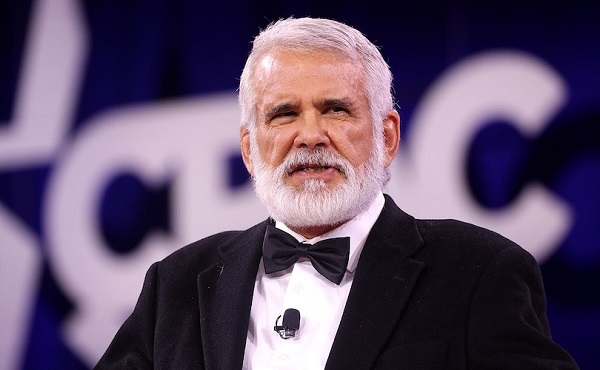News
New family-friendly workplace rules in place

January 02, 2018
Alberta’s new employment standards came into effect Jan. 1, protecting the rights of hard-working Albertans, aligning with the rest of Canada and meeting the needs of today’s workplaces.
As part of a commitment to make life better for Alberta workers and their families, the government introduced The Fair and Family-friendly Workplaces Act, which was passed by the legislature in June 2017. The Employment Standards Regulation was also updated to better protect workers.
“Albertans deserve fair and family-friendly workplaces that support a strong economy and ensure they can take care of their loved ones. After nearly 30 years of inaction by the previous government, Alberta’s laws were out of date and out of step with the rest of Canada. I’m proud that our government brought forward these modern, fair and balanced laws that protect the rights of hard-working Albertans, support their families and help businesses stay competitive.”
Christina Gray, Minister of Labour
Key changes include:
- Job-protected sick leave, long-term illness and injury leave, care for critical adult or child leave, bereavement leave, domestic violence leave, death or disappearance of a child leave and citizenship leave.
- Expanded compassionate care, maternity and parental leave to align with federal Employment Insurance benefits.
- Eligibility for leaves after 90 days rather than one year
- Overtime banking at 1.5 times the number of hours worked.
- Simplified General Holiday Pay and increased eligibility.
- Clarified standards for vacations and vacation pay.
- New standards for termination, termination, pay, group layoffs and temporary layoffs.
- New penalty system for employers found to be contravening the code or regulation.
- New rules for youth employment are in development and expected to be in place May 1, 2018.
Some changes also apply to waged, non-family workers in Alberta’s agricultural sector. The proposed changes have no effect on youth activities such as 4-H, casual work or branding parties, and ensure friends and neighbours can continue to help each other as they have done for generations.
The Government of Alberta has made several products and services available to help employers and employees learn the new rules, including:
- new website and printable fact sheets
- instructional videos
- live webinars
- posters available for print, download or pre-order
- revised toolkit for employers
- frequently asked questions
Employer groups, non-profit organizations and worker representatives are also encouraged to sign up for an available webinar. Requests for in-person information sessions will be reviewed and considered on an individual basis. To book a session, email [email protected].
Employers and employees with questions can also contact the Employment Standards Contact Centre at 780-427-3731 (Edmonton area) or 1-877-427-3731 toll-free. More information is available online at https://www.alberta.ca/employment-standards-changes.aspx.
Related information
Multimedia
Daily Caller
Watch As Tucker Carlson And Glenn Greenwald Get A Good Laugh Over CNN Pretending Biden’s Decline Is Breaking News


From the Daily Caller News Foundation
By Hailey Gomez
During a podcast Friday, Daily Caller News Foundation co-founder Tucker Carlson and independent journalist Glenn Greenwald couldn’t stop laughing over CNN’s sudden realization of former President Joe Biden’s mental decline.
CNN’s Jake Tapper along with Axios’ Alex Thompson released their book, “Original Sin,” on May 20, which details Biden’s cognitive slide over the last four years — a concern Republicans had raised even before the 2020 election. While appearing on “The Tucker Carlson Show,” Carlson joked that Greenwald had been “scooped” by CNN on Biden’s mental fitness.
“So you are, I think, the dean of alternative media. You’ve been doing this longer than anybody that I know personally. So it must be a little weird to get scooped by CNN on Joe Biden’s dementia, like you had no idea,” Carlson said. “None of us knew.”
“None of us knew,” Greenwald teased. ” There was that debate, and we were all shocked, but we were told he had a cold. So I was like, ‘OK, he’s on some cold medication. Who hasn’t been there before? It makes you a little dragged, a little groggy, a little just like dragged.’ But no, now Jake Tapper has uncovered the truth. It turns out Joe Biden was in cognitive decline.”
Sources told Tapper and Thompson that Biden’s mental fitness had declined rapidly during his time as president, with his mental state becoming so severe at one point that aides discussed putting him in a wheelchair.
WATCH:
Tapper has faced pushback from both Democrats and Republicans over the timing of his book and the revelations it includes. The CNN host has long defended the former president.
Carlson went on to joke with Greenwald about how he believed Tapper gathered the material for the book.
“Just a hardcore shoe leather investigative reporting,” Greenwald joked. “He’s working his sources, calling all the people in Washington, digging up FOIA documents.”
“It’s one of those things where you kind of can’t believe what you’re witnessing because Jake Tapper is pretending to have uncovered a scandal that he himself led the way in the media, or one of the leaders in the media, in covering up,” Greenwald added. “To the point where if somebody would go on his show and say ‘Joe Biden is obviously in cognitive decline.’ He would say ‘How dare you bully kids who stutter?’”
Greenwald went on to reference how Tapper had accused President Donald Trump’s daughter-in-law, Lara Trump, of “mocking” the former president over his stutter during a 2020 interview.
Despite Lara Trump pointing to what she believed were signs of Biden’s problems, Tapper dismissed her remarks at the time, saying she had “no standing to diagnose somebody’s cognitive decline.”
In addition to Lara Trump, Tapper also dismissed former Democratic presidential candidate Dean Phillips during a 2024 interview after Phillips expressed his “concerns” about Biden running for a second term.
“Obviously, he wanted Biden to win desperately and would not tolerate anyone going on the show and saying that Biden was in cognitive decline,” Greenwald said. “Now he’s making millions of dollars off a book.”
Following the media coverage of Tapper’s and Thompson’s book, Biden appeared to tell reporters on Friday he could “beat the hell out of” the two journalists.
International
Bongino announces FBI will release files on COVID cover up, Mar-a-Lago Raid and more

 MxM News
MxM News
Quick Hit:
FBI Deputy Director Dan Bongino announced that the bureau will begin releasing information on a number of controversial investigations long shielded from public view.
Key Details:
- Bongino said the FBI is clearing information on high-profile cases, including COVID, Crossfire Hurricane, and the Trump Mar-a-Lago raid.
- The bureau is actively working with the DOJ on releasing Epstein case details and cracking down on child sexual abuse content.
- Bongino dismissed media attacks on FBI Director Kash Patel as “verifiable lies” and accused the press of fabricating stories.
Diving Deeper:
FBI Deputy Director Dan Bongino disclosed on Saturday that the bureau will begin releasing information previously kept under tight wraps, including cases that many Americans believe were swept under the rug for political or institutional protection.
Bongino, a former NYPD officer, Secret Service agent, and outspoken conservative commentator, took to X to announce that his office has already started cooperating with Congress and the public by providing long-requested information. Among the cases he cited: the attempted assassination of Rep. Steve Scalise, the Nashville Christian school shooting, the Crossfire Hurricane probe, and the COVID-19 origins and cover-up.
“This isn’t business as usual anymore,” Bongino wrote. “We’re clearing information to Congress, and the public, as quickly as possible.”
One of the most politically explosive revelations relates to the FBI’s handling of the Mar-a-Lago raid, an unprecedented move to search the home of the sitting president’s top political opponent, President Donald Trump. Bongino’s announcement signals that internal communications and case files may soon be scrutinized by congressional investigators and the public alike.
Bongino also confirmed that the agency is working closely with the DOJ on the Epstein case, noting the overwhelming volume of child sexual abuse material that must be reviewed. He emphasized that protecting children remains a core mission of the FBI under his and Director Kash Patel’s leadership.
“Operation ‘Restoring Justice,’ where we locked up child predators and 764 subjects, in every part of the country, is just the beginning,” he wrote. “Think twice if you’ve targeted children, because you’re next.”
The deputy director didn’t hold back in pushing back against media reports that characterized Patel’s leadership as unserious or performative. “The media continue to entirely fabricate stories,” Bongino wrote, describing reports about Patel skipping briefings and attending sports events as “a verifiable lie.”
He defended Patel’s work ethic, noting that the FBI director routinely works 10–12 hour days and meets with top counter-terror officials and global law enforcement partners.
-

 Health2 days ago
Health2 days agoRFK Jr. appoints Robert Malone, Martin Kulldorff, other COVID shot critics to overhauled CDC vaccine panel
-

 Alberta2 days ago
Alberta2 days agoOil prices are headed for a hard fall
-

 Business2 days ago
Business2 days agoOur addiction to dairy supply management is turning Canada into a trade pariah
-

 Business2 days ago
Business2 days agoThe carbon tax’s last stand – and what comes after
-

 Business2 days ago
Business2 days ago84% of Swiss hospitals and 60% of hospitalizations are in private facilities, and they face much lower wait times
-

 Bruce Dowbiggin2 days ago
Bruce Dowbiggin2 days agoCanadians Thinks America Owes Them. Trump Has Other Ideas
-

 conflict1 day ago
conflict1 day agoIsrael strikes Iran, targeting nuclear sites; U.S. not involved in attack
-

 Business1 day ago
Business1 day agoTrump: ‘Changes are coming’ to aggressive immigration policy after business complaints





